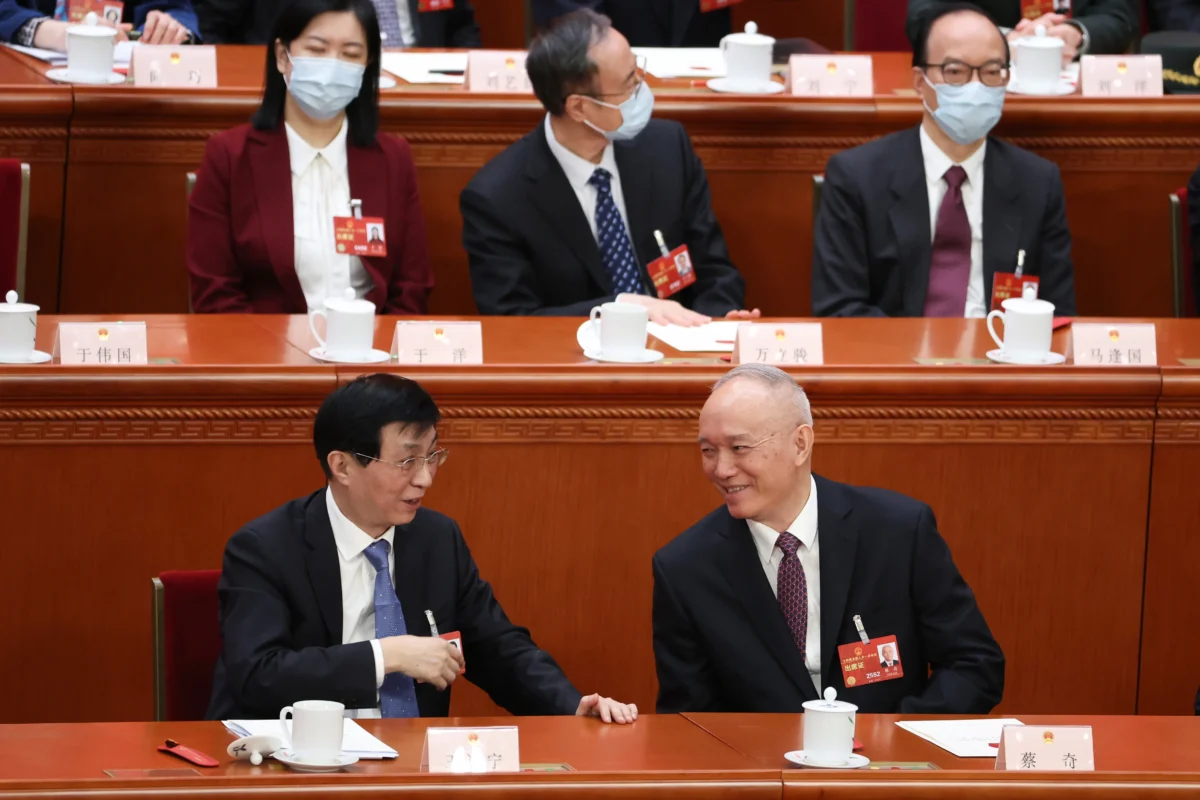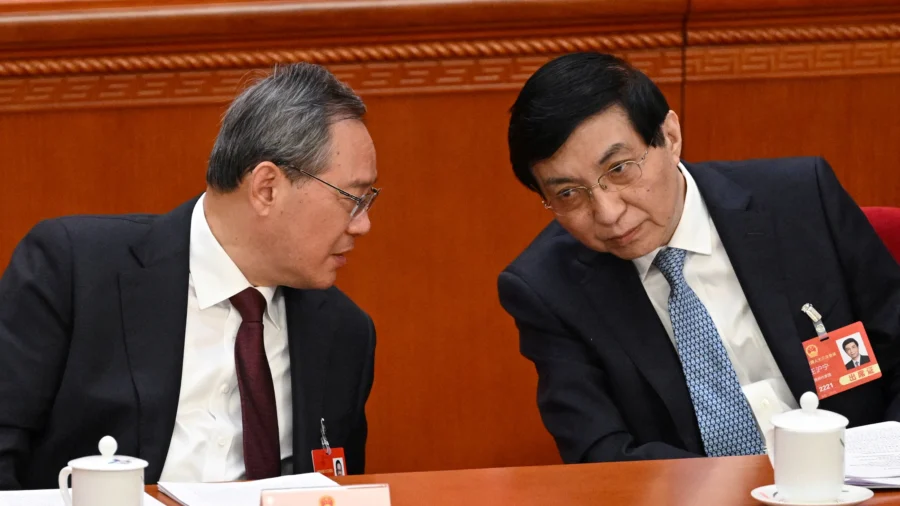Analysis
Many people attribute communist China’s anti-U.S. stance primarily to Chinese Communist Party (CCP) leader Xi Jinping, viewing it as a reflection of his outlook and China’s rise as the world’s second-largest economy. However, it is not a new phenomenon, as it is part of a long-term agenda that has been evolving for at least three decades.
This should not come as a surprise, as the ambition to challenge free democracies and assert China’s dominance on the global stage is deeply rooted in the ideological foundation of the CCP.
Continuing this legacy, Xi has made confronting the United States a central focus of his national strategy, particularly during his third term. When instructing officials at all levels to prioritize this issue, he emphasized that this confrontation is not a personal agenda but an inevitable phase in the CCP’s development, according to a senior public security official who recently spoke to The Epoch Times.
A 1991 book by Wang Huning, Beijing’s chief ideological strategist and fourth most important leader, offers clear evidence that the Party’s hostility toward the United States dates back at least 30 years. At that time, the United States opened its doors to China, hoping that it would evolve into a democratic country and thrive in the global market.
Wang, a current member of the Politburo Standing Committee, has been a trusted adviser to three successive leaders of the CCP: the late Jiang Zemin, Hu Jintao, and Xi Jinping. Throughout his career, Wang has played a crucial role in shaping key ideological policies. Widely regarded as the chief architect of the CCP’s ideology, he has maintained this influential position for decades.

In the late 1980s, as a professor at Fudan University, Wang traveled across the United States, visiting various cities and towns. He offered his perspective on U.S. society, shaped by his own biases, in the book “America Against America.” It is a critical analysis of what he perceives as the contradictions and weaknesses within U.S. society, particularly core U.S. values such as freedom, democracy, and equal opportunity.
After returning to China, Wang gradually emerged as a key figure in opposing the principles of freedom and liberty promoted by democracies around the world. He established new core values by blending Marxist socialism with nationalism, aiming to counter the influence of Western ideals of freedom and liberty.
Since its publication, “America Against America” has continued to circulate widely among China’s political elite. Xi appears to be among those who have fully embraced Wang’s anti-West viewpoint.
For example, the CCP’s 20th Party Congress report released in 2023 explicitly called for “firmly safeguarding national ideological security,” indicating a firm adherence to the “socialist path” and resistance to foreign ideological influences.
US Responds to CCP’s Ambitions
In recent years, U.S. officials and experts have expressed concerns about the Chinese regime’s ambitions to replace the United States as the global superpower. They have acknowledged that taking a more proactive approach two decades ago could have mitigated the current challenges posed by the CCP’s global ambitions.
Mike Gallagher, former chairman of the U.S. House Select Committee on the CCP, has cited Wang’s book. During a U.S. congressional hearing on Feb. 28, 2023, the former U.S. lawmaker said the book “describes the strategy that Wang, Xi Jinping, and the CCP have pursued in the years since—pitting Americans, who they believe are greedy and factional, against each other to undermine [the] country.”
An October 2024 report from the House Committee on Oversight and Accountability, titled “CCP Political Warfare: Federal Agencies Urgently Need a Government-Wide Strategy,” details the extent and severity of the CCP’s political warfare against the United States and highlights the lack of an adequate U.S. response.
The 300-page document details various aspects of the CCP’s political warfare directed at the United States, many of which have been overlooked by U.S. government agencies. The key areas identified include unrestricted warfare, disintegration warfare, United Front operations, elite capture, narrative dominance, and influence within the Chinese community.
The CCP’s United Front strategy attempts to influence foreign leaders and key individuals to adopt a pro-Beijing stance.
The report discusses the CCP’s military strategies found in works such as “Unrestricted Warfare” and “Disintegration Warfare,” which aim to undermine and destroy the United States.
The CCP’s hostility toward the United States is on full display in the 1999 book “Unrestricted Warfare: China’s Master Plan to Destroy America.” Authored by two Chinese colonels, this book presents a concept of warfare that transcends traditional boundaries, in which the means of combat are limitless and not constrained by political, historical, cultural, or moral considerations.
“Unrestricted Warfare” outlines various potential battlefields, including finance, trade, media, international law, and space. The authors suggest that weapons and strategies can encompass cyberattacks, terrorism, biochemical warfare, nuclear warfare, electronic warfare, ideological warfare, drug trafficking, intelligence operations, and economic sanctions. Essentially, the overarching goal is to achieve the CCP’s objectives by any means necessary.
The House Committee on Oversight and Accountability report also discusses how influential U.S. figures in politics, business, and academia are being used as tools for CCP lobbying, posing significant national security threats. In addition, CCP propaganda, including the narrative that “China is bound to succeed and the United States is bound to fail,” has gained traction in U.S. society.
During the February 2023 congressional hearing, Gallagher commented on the CCP’s infiltration, saying, “The CCP has found friends on Wall Street, in Fortune 500 C-suites, and on K Street who are ready and willing to oppose efforts to push back.”
The House Committee on Oversight and Accountability report states that despite ongoing CCP influence across the United States, the federal government has failed to implement an effective strategy to counter these efforts. It calls for stronger federal action to protect national sovereignty and security, urging officials to recognize the CCP’s true nature and invest more in homeland security, innovation, and critical technologies.
Gallagher noted that the United States attempted to befriend China for decades, mistakenly believing that economic engagement would lead to positive change within the CCP.
“We were wrong,” he said at the February 2023 hearing. “The CCP laughed at our naivete while they took advantage of our good faith. But the era of wishful thinking is over. The Select Committee will not allow the CCP to lull us into complacency or maneuver us into submission.”
From The Epoch Times
Views expressed in this article are the opinions of the author and do not necessarily reflect the views of NTD.com

